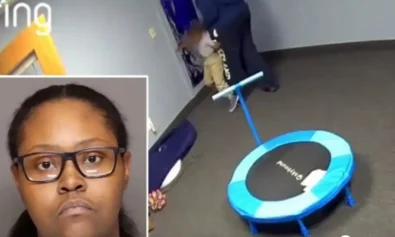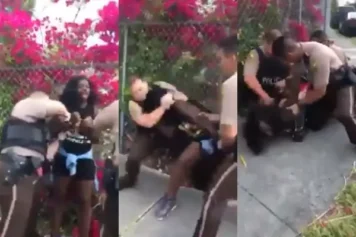A viral TikTok video has given the world a peek into the life of a Black physician, detailing how she encounters racism on the job. The most shocking revelation was not that the British woman experienced race-based prejudice as a medical professional, but that much of her disrespect comes from people she took an oath to heal, her patients.
In 29 seconds, dressed in a tank top, shorts, and a hat that gets knocked off as she dances her cares away, Dr. Yaa Oheema flashes numerous messages that she’s heard as a doctor in a South London emergency room.
Some of the statements she wrote on her screen said “They let anyone become doctors, don’t they?” “Can I speak to the actual doctor?” and “You must be one of the good ones.”
One remark, she says, inquired about which “village” in “Africa” she was from, while another simply called her a “Black bxtch.”
The most dismissive asks her, “Are you certain you’re not the nurse or cleaner.”
Dr. Oheema’s experience is not isolated. According to a report titled “Racism as Experienced by Physicians of Color in the Health Care Setting” released by Family Medicine and led by Kelly Serafini, Ph.D., “physicians of color were routinely exposed to instances of racism and discrimination while at work.”
According to the research, 71 Black doctors, 23 percent of the participants “reported that a patient had directly refused their care specifically due to their race,” including experiencing “microaggressions … at work and symptoms of secondary traumatic stress were significantly correlated.”
The team of seven discovered their “qualitative data revealed that a majority of participants experienced significant racism from their patients, colleagues, and institutions.”
In an interview with the Mirror UK, Oheema echoed the 2003 findings.
“I do get a lot of racist comments like ‘are you sure you’re not the nurse or the cleaner?’ Even when I have ‘doctor’ on my lanyard,” she said.
The Southwark, South London, native said, “Even after I have spent an hour with a patient, I could get asked ‘when’s the real doctor coming in?’ It’s horrible.”
The medical professional says “when the comments come from white people, it tends to come from the older population. I guess it comes from experience and ignorance, where they haven’t adapted to the way things are now.”
Dr. Oheema said once a patient told her that “back in my day, Black people didn’t go to university,” before asking how she became a doctor.
These people would be shocked to know that she was able to become a foundation doctor in only three years back in 2020. A foundation doctor is a term used in the UK for a medical professional who has matriculated through two years of postgraduate practice and is working in a hospital for her next level of training. This type of doctor can be compared to a resident.
The mother got her official stethoscope at 24 years old.
The ignorance is not isolated to one race. She revealed she sometimes gets comments from middle-class “ethnic minority patients.” The caveat with their remarks points to them being dissatisfied with their service or if they “don’t give them what they want,” such as the doctor signing off on them getting six months of recovery time at home, despite not needing it.
As a student, Dr. Oheema said she thought about the possibilities of discrimination on the job.
“When I was training to be a doctor, it was in the back of the mind that I might be treated differently due to the color of my skin,” she recalled. “But I thought, working in London, that wouldn’t be as much of an issue. London is very diverse so it came as a big shock. I work in a diverse hospital with a diverse population.”
She said she is still shocked, claiming “a lot of her colleagues have had similar experiences.”
“They’ll get a lot of comments like ‘I can’t understand your accent’ or similar comments to mine where they’re mistaken for the cleaner,” she noted.
Dr. Oheema said the reason why she posted the video was to raise awareness of the unexpected discrimination many civil workers experiences.
“I shared these comments on TikTok to raise awareness about the day-to-day life of a Black doctor,” she said, according to the Daily Mail. “My whole TikTok is about challenging stereotypes about doctors.”


